The Motor Sport Interview: Otmar Szafnauer
Ousted by Alpine in 2023, former team principal Otmar Szafnauer tells us how his relationship with the French soured and why he’s impatient to return to the highest level – Formula 1
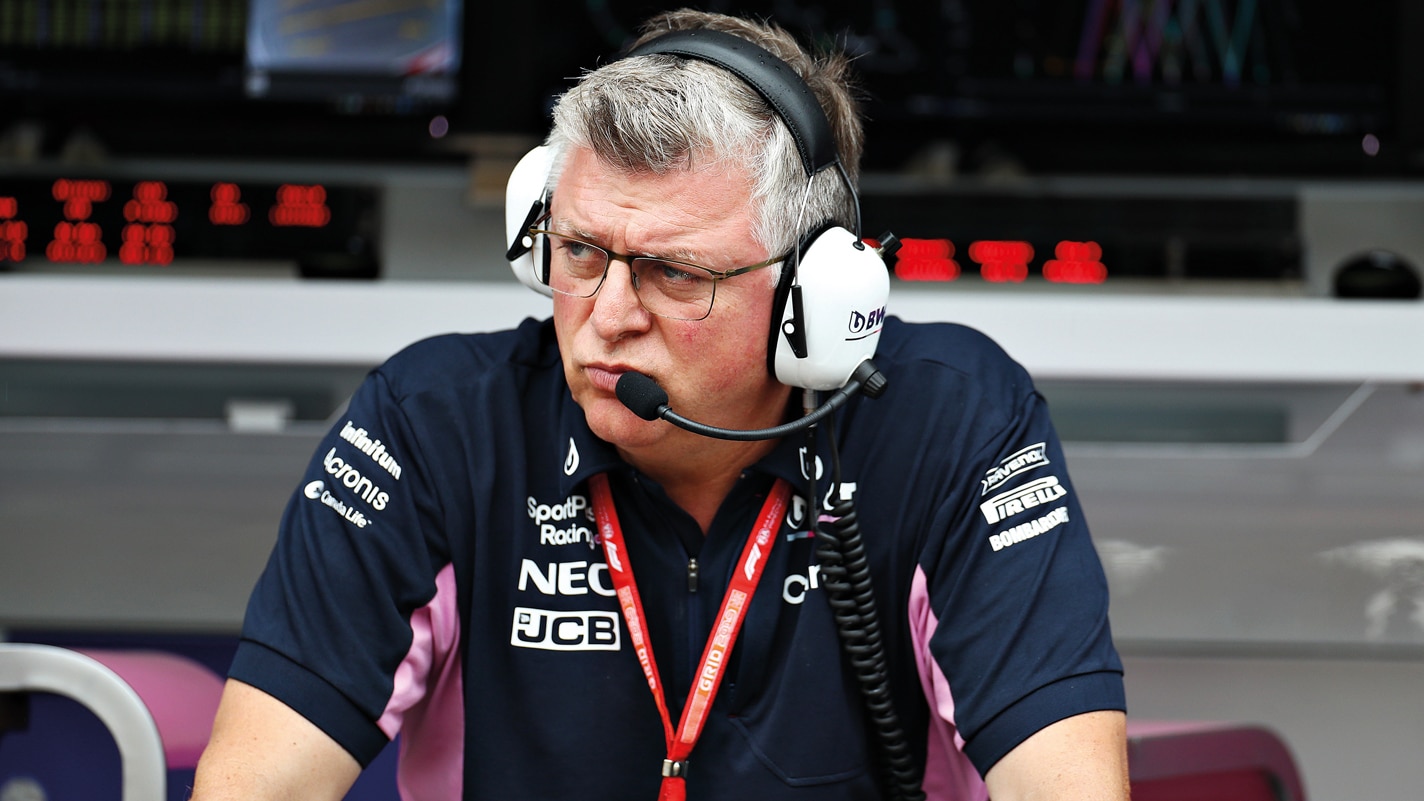
Getty Images
Otmar Szafnauer’s journey from a small village in Romania to the Formula 1 paddock, where he’s been team principal at Force India, Aston Martin and Alpine, is one of the sport’s success stories. In July 2023 this journey came to an abrupt and surprising halt with his departure from Alpine at the Belgian Grand Prix.
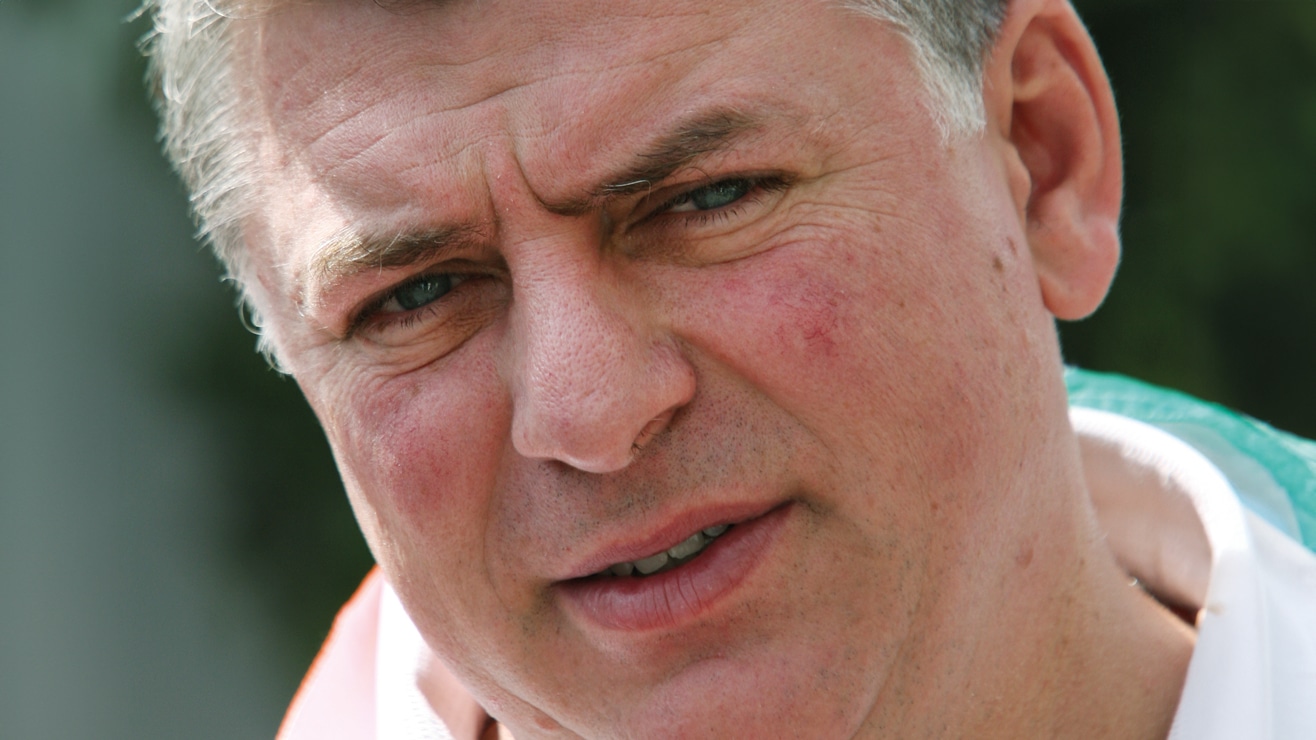
Otmar Szafnauer joined Force India in ’09; the team finished ninth out of 10
Grand Prix Photo
Son of an American father and Romanian mother, Szafnauer’s career began at Ford in Detroit, followed by spells as operations director at BAR, vice-president of Honda Racing Developments on its return to F1 in 2001, and on to Force India where he played an integral role in the team’s rise into the top five in the constructors’ championship. Now on ‘gardening leave’ from Alpine, he talks to us about the challenges of leadership in Formula 1 and his plans for the future.
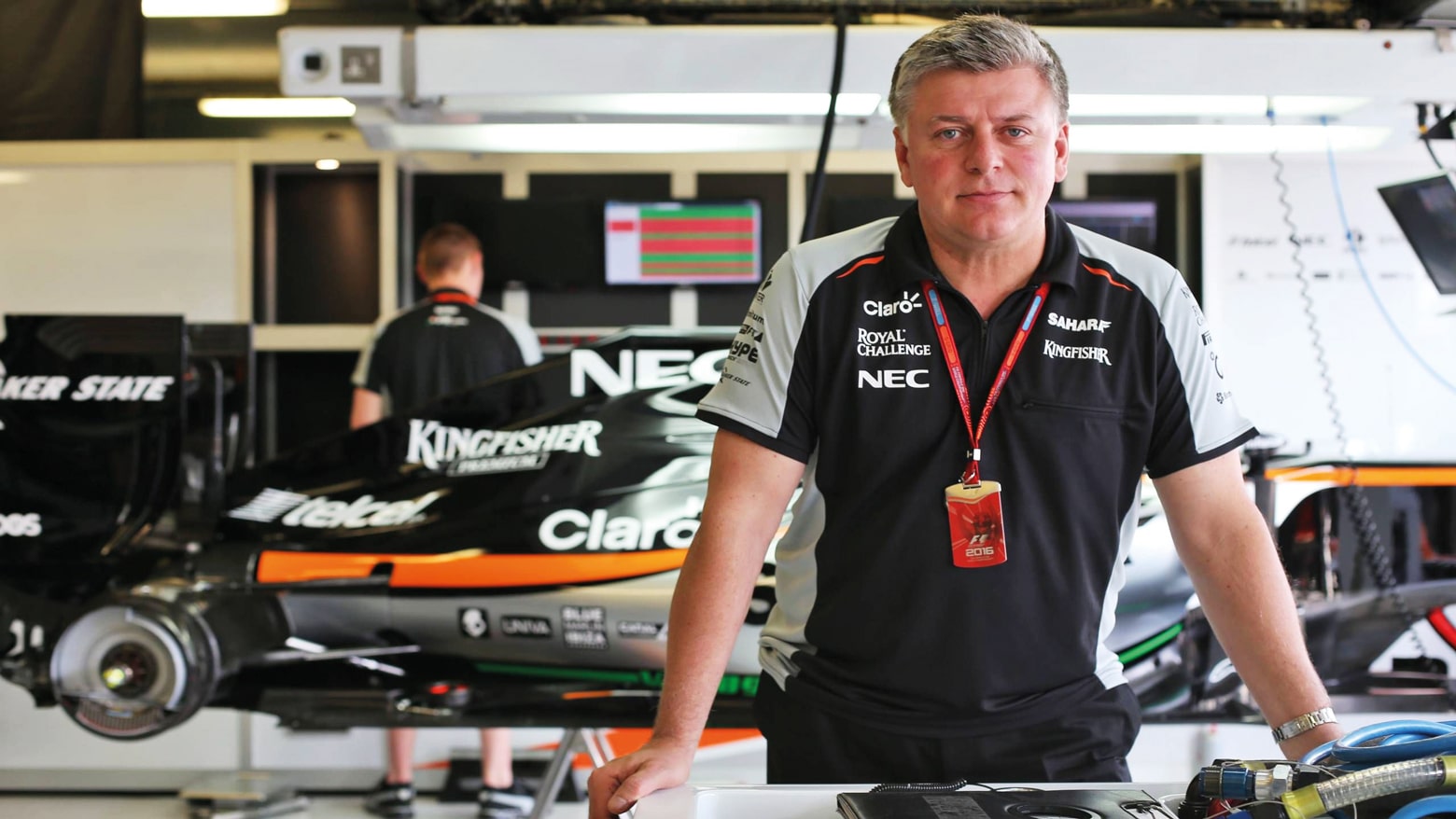
Szafnauer gradually improved Force India, breaking into the top five constructors in 2015 before two fourth-placed seasons in 2016 and ’17
Force India
Motor Sport: Before we get into the detail of what brought about your departure from Alpine it would be useful to understand exactly what being a team principal, in a sport as intensely competitive and ruthless as Formula 1, is all about.
OS: That’s a good question. First and foremost you gotta be a good team leader and, to be a good team leader, you have to be able to put a good team together that you can lead. The biggest leadership skill is empathy. You gotta be able to put yourself in the shoes of those people you are leading.
Formula 1 is unique in that the engineers, technicians and aerodynamicists are the best in the world. One of the reasons Honda wanted to do everything themselves in Formula 1, never hiring experts from outside Honda, is because they believed that the sport has the best technical talent in the world – and they use that as a barometer to understand how good their own talent is. They know that, if they can win in Formula 1, then they are beating the best engineers in the world, and it follows that their own people are pretty good. So, as a team principal, you need to know who you’re dealing with inside the team. When I was at BAR a colleague said to me, “We have more doctors here than the local hospital,” because so many of these engineers have PhDs from the world’s best universities. You need to lead these people in a different manner, you can’t lead them like they’re assembly line workers at a car factory, and so that empathy is very important. You need a decent understanding of the sport, and the technology, so an engineering background helps. Bottom line, you gotta treat people right.
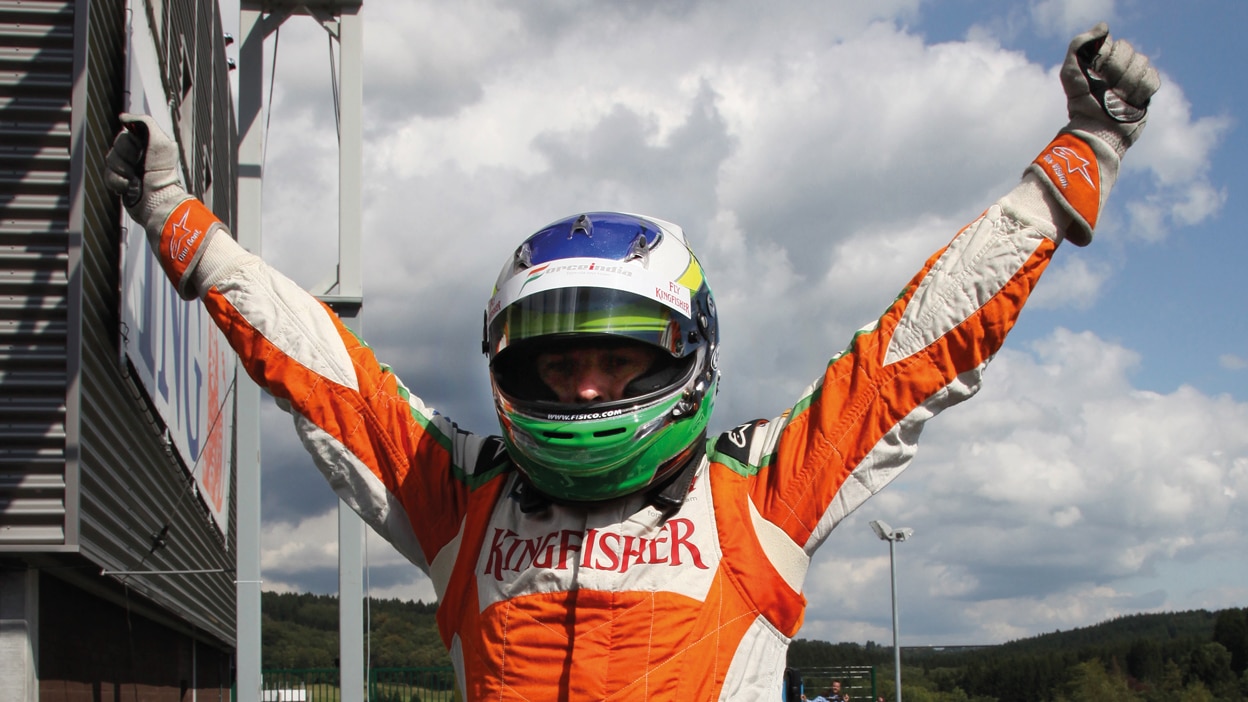
Force India’s only pole – the 2009 Belgian GP; Giancarlo Fisichella can’t hide his delight
Grand Prix Photo
Motor Sport: A lot of the frustration that led to your sudden departure from the Alpine team came from not being allowed time to hire the right people. You pointed out that getting nine women pregnant does not provide a child in a month.
OS: Yeah, it was frustrating. My hands were tied, I had signed some good people, but their contracts at other teams ran until 2024 or 2025. You cannot push development if you don’t have the right people. There were similar challenges at Force India but we gradually worked our way forward. The big question was: how am I going to get people from, say McLaren, when they had such a huge budget, an outstanding facility designed by Sir Norman Foster, with a gym, a great canteen, and all sorts of benefits for the employees? We had none of that. The answer is how you treat these people. You have to respect what they bring, give them responsibility commensurate with their ability, and make sure you don’t micro-manage them. If you take risks and they don’t work out, don’t stab them in the back. You have to understand each individual. Some like money more than others, some like praise, some like the responsibility that comes with making an impact, so you empathise and give them what they want. It’s always about treating people right, and with respect.
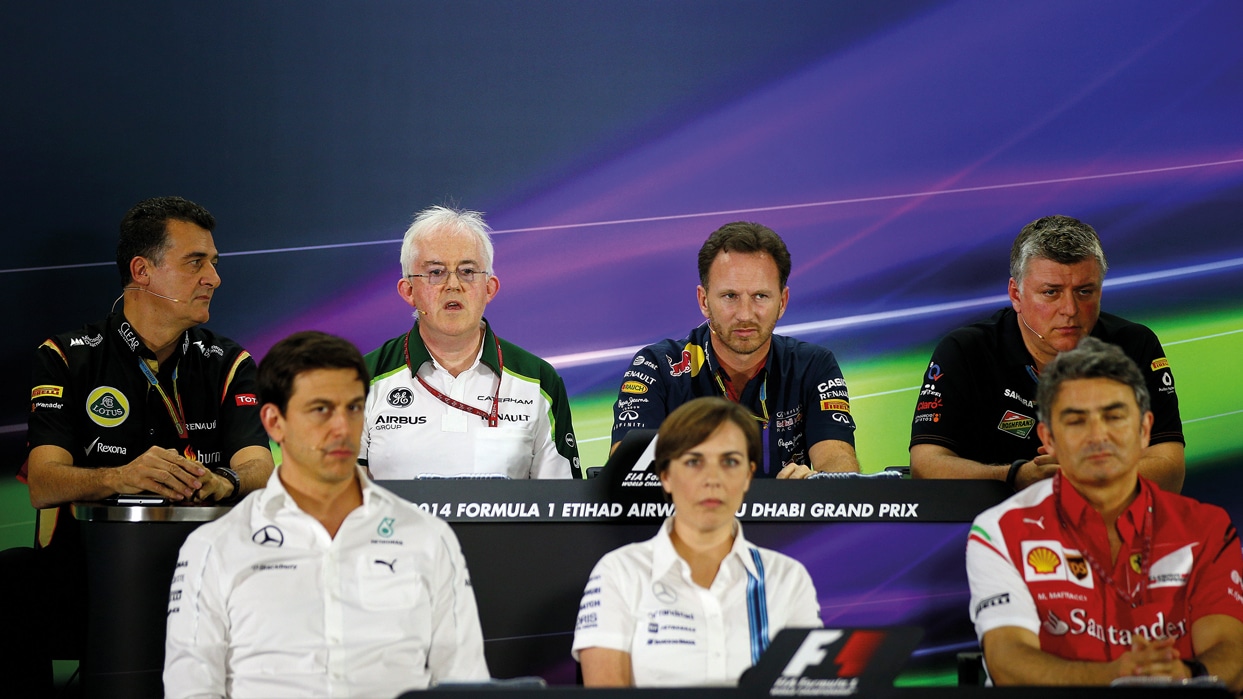
Principals on parade, Abu Dhabi, 2014. Force India’s Szafnauer is seated top right
Getty Images
Motor Sport: Bearing in mind your success at Force India, and your own university degrees in both engineering and business, what on earth went so wrong at Alpine?
OS: I will tell you. The company’s senior bosses wanted success faster than was possible. I told them what was possible, and they said they didn’t have time for that. It seems they don’t understand that it takes time to change a culture, to get new skill sets where we didn’t have them.
The reason it takes time is because it’s all about the teamwork; you can’t do it all yourself. The average team has 1000 people, Red Bull has maybe 2000, probably over half of those on the F1 team itself. They sign up their best talents for three years and after two years they start talking to these people about the next three years. So, to get the people you need takes time. At Alpine there are pockets, I mean some important technological capabilities, that just do not exist. They simply don’t have the technical ability they need. When I got there I told them they needed this stuff, and some new people.
When you start recruiting you are lucky to get anyone within a year because of their multi-year contracts. And, of course, you need to offer them something they don’t have, like more responsibility. I told Alpine I was making progress but their response was always, ‘We don’t have time for this.’ That was the cause of our disagreement and I was given less than 10 days warning of their decision that led to my departure at the Belgian Grand Prix.
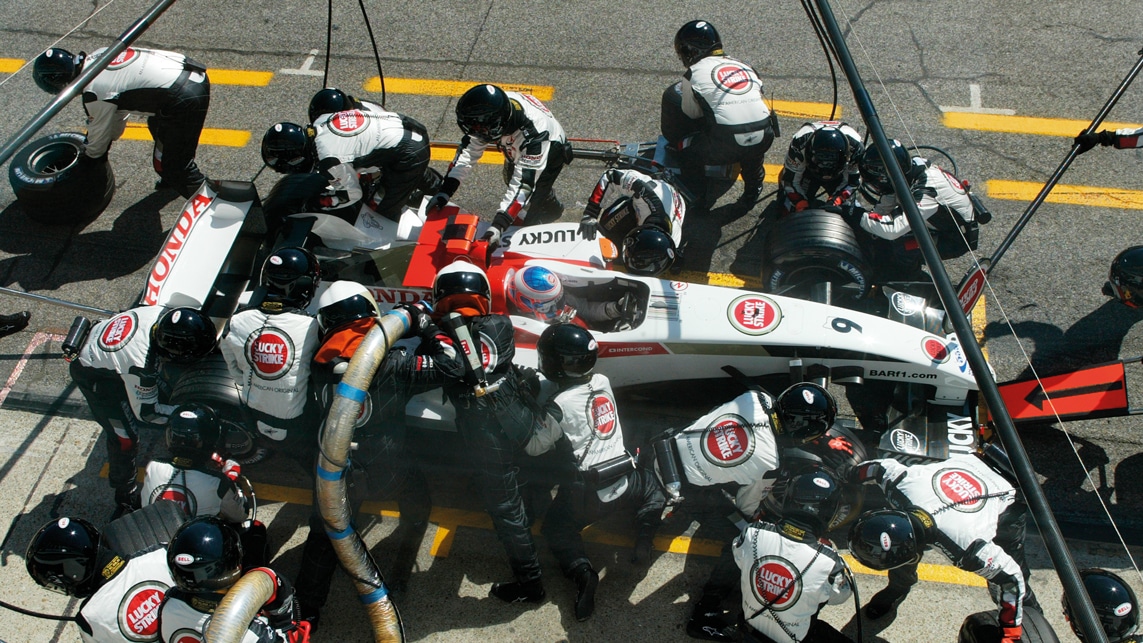
Szafnauer was a Honda high-flyer when BAR was using Japanese power
Grand Prix Photo
Motor Sport: Patrick Head has observed that big corporations don’t always fully understand the way Formula 1 works. Toyota and Jaguar come to mind. Big budgets, little success.
OS: Yes, he is right, and they don’t always understand the vital ingredients that make up a great Formula 1 team. After 26 years in the sport, at senior level, I am aware that it’s creative engineering that is ultimately the answer. Physics is physics, maths is maths and, while an engineering discipline is important, you have to be creative to make the biggest impact on track performance. The constant pursuit of innovation has produced ground effects, the F-duct, the double diffuser, active ride, exhaust blowing the floor to increase downforce. It’s this kind of creativity that makes a real difference, and has a true impact on results.
“It’s creative engineering that is ultimately the answer“
Working with a major manufacturer, however, can make the job more difficult because, in general, they tend to think in straight lines. This is corporate culture and was part of the problem at Renault/Alpine.
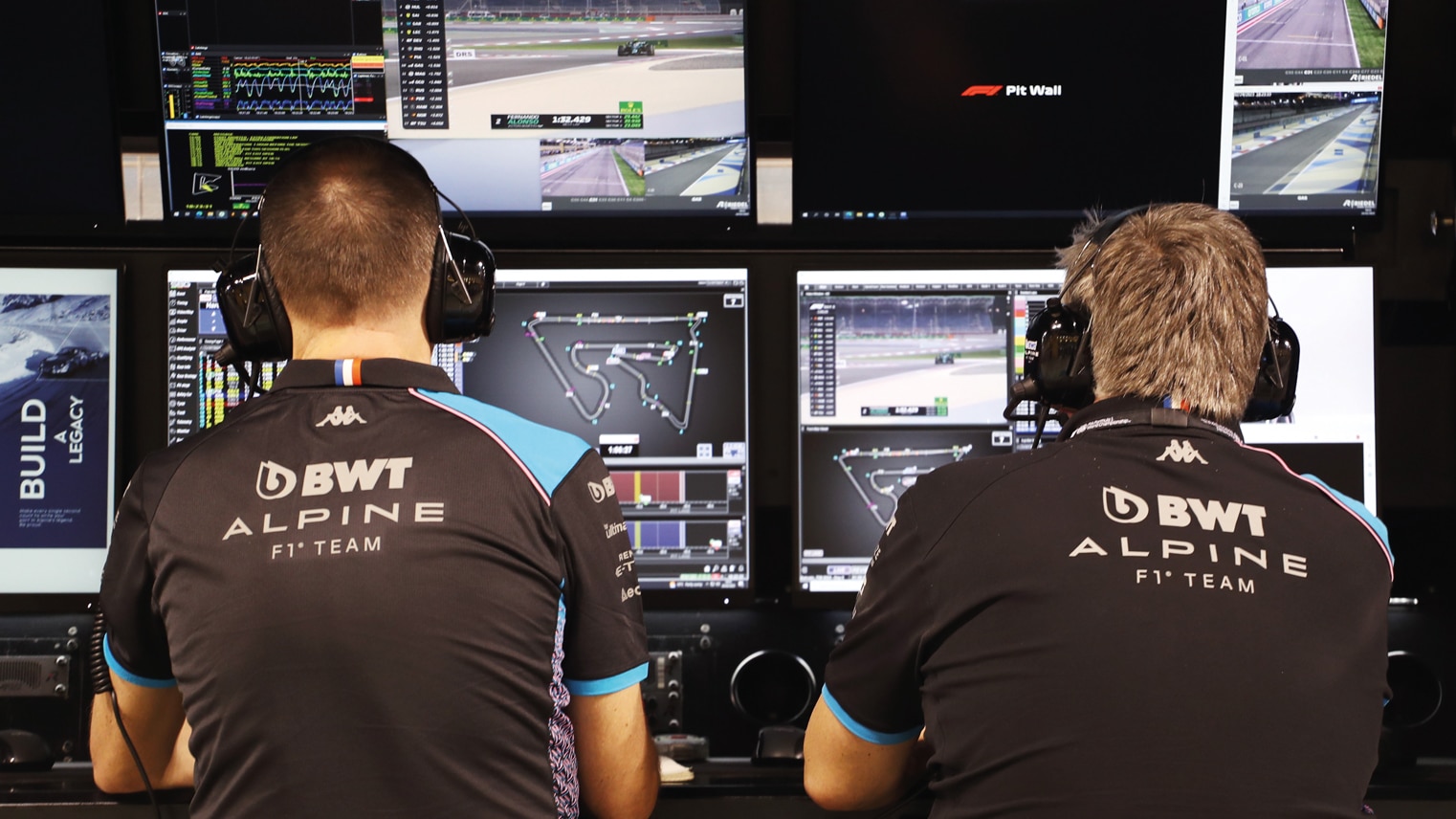
Szafnauer, right, with Alpine sporting director Alan Permane at F1 testing in Bahrain, February 2023. Both were released by the team at the Belgian GP in July
Getty Images
Motor Sport: After so many years at the sharp end of the sport what was it like to be abruptly shown the door at Alpine?
OS: This may sound egotistical but I believe I was doing a good job at Alpine and that I was making the right changes. I have seen new team leaders make changes for the sake of change, they want to show the owners that they are doing something, making changes for the better. The problem is they often don’t understand the changes they’re making. When you walk into a situation like Alpine you first have to get a deep understanding of what you have, what’s good, and what needs changing, but you cannot do that overnight. What you need to avoid is changing something that’s already good and making it worse.
“I was doing a good job at Alpine and making the right changes“
At Force India they kept asking me “What are you going to do? What are your plans?” And I said I didn’t know what I was going to do because first I had to figure out what was there. Then I saw places where I thought they could do better, and I started on those. We had 280 people and ended up with 405, all those extra people hand-picked for their skill sets, and we went from last to fourth in the constructors and stayed there. I got the Mercedes engine, the best at the time, and we started making progress.
When the new Pirelli tyres came in 2011 I hired the best tyre guy in the pitlane. He brought with him the best tyre modeller that Bridgestone had, and then he brought the best tyre compound engineer, and all of a sudden we’d got the skill sets that enabled us to understand the new Pirelli tyres better than anyone.
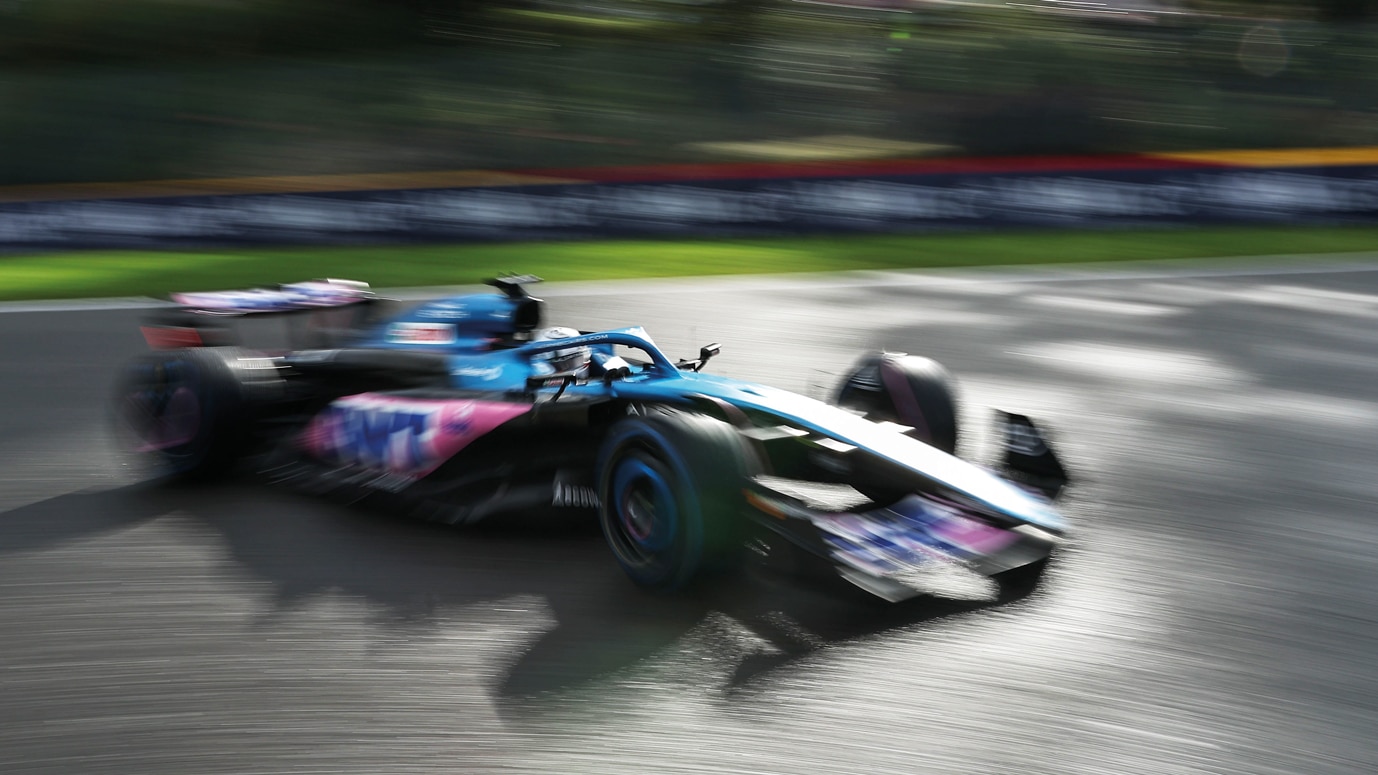
Much was expected of Alpine in ’23 but it finished sixth in the constructor’s standings
Getty Images
Motor Sport: Lawrence Stroll turned Force India into Aston Martin, another new entry. How did you find working for this highly ambitious individual?
OS: He wants to win, and like every other aspect of his life, he just wants to be a winner. His success in the fashion business derived from hiring people from other fashion houses who were the best in the world. He told me it took him nine months to convince Gucci’s best handbag designer to join his business.
He knew he had to do this in Formula 1, get the best people, aerodynamicists and engineers from the successful teams. The problem is, once you’ve exhausted all the specialist knowledge that comes with those people from, say, Mercedes or Red Bull, you still need to have a good team to continue that development.
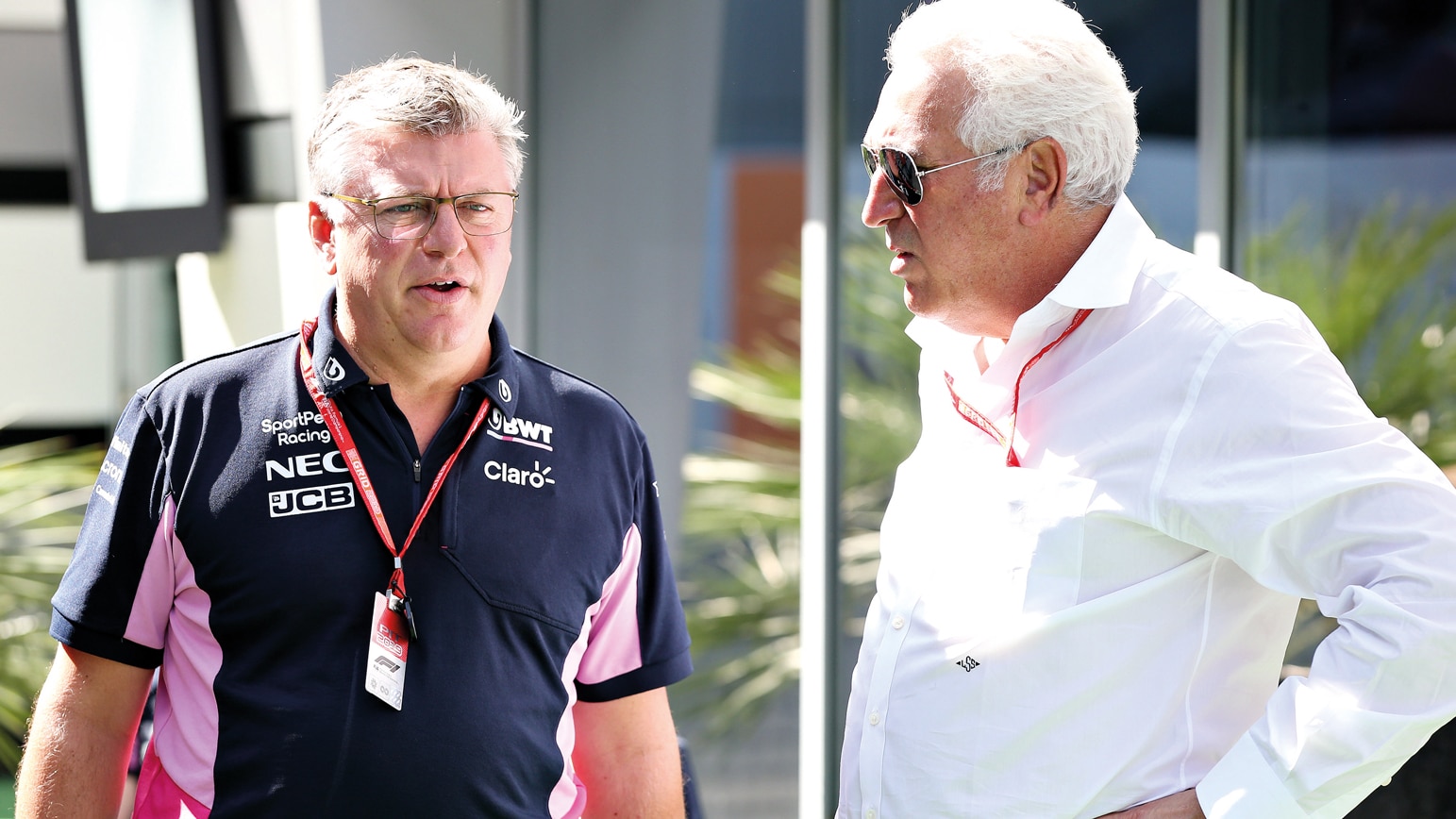
When Force India went bust in 2018 Szafnauer had a new boss at the renamed Racing Point Force India – Lawrence Stroll
Getty Images
Motor Sport: Are you saying, from these two examples, Alpine did not fully understand how it all works? For instance, should they have disposed of Alain Prost, a four-time Formula 1 world champion?
OS: I don’t know the dynamics of why and how that happened. Alain called me when he heard I was joining the team, said he would have enjoyed working with me. I have great respect for Alain, for what he has achieved, as do many others. I can’t say it was right or wrong, it was just before I arrived.
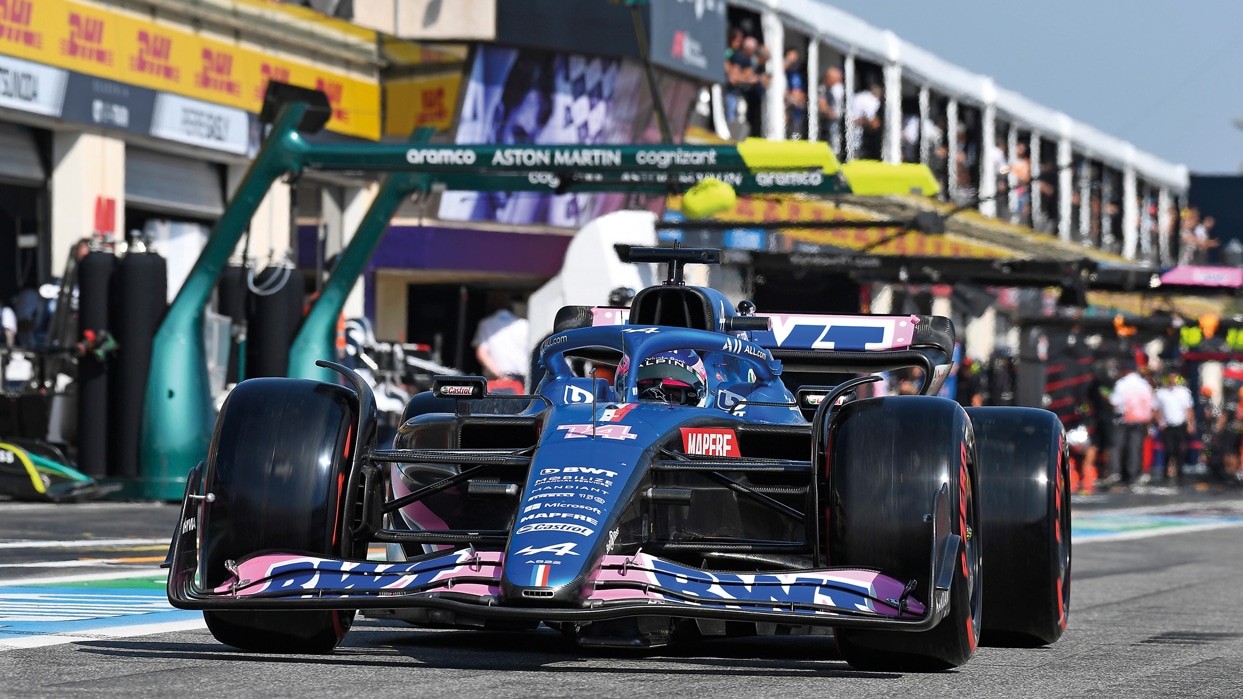
Fernando Alonso brought the best out of the Alpine crew, but joined Aston Martin in 2023
Grand Prix Photo
Motor Sport: What did you learn from the negotiations that led to Alpine’s failure to retain Fernando Alonso and to sign Oscar Piastri at the end of 2022?
OS: As far as Fernando is concerned he is just brilliant. He is still very highly motivated, gives great feedback, gets up to speed very quickly, and he pushed everyone to extract the maximum from the package we had. He was a free agent and did what was right for Fernando, and so he should have. He would have been a good guy to keep but that wasn’t my decision.
With Piastri, the legal team at Alpine didn’t dot the i’s and cross the t’s on the contract so he had an out. When I joined the team those contracts were in place and he wanted to drive for us but that all changes when you get another offer and you start looking at the details of the contract. I think the lawyers assumed everything was fine because it was all amicable up to that point. What I learnt from that was that I hired a totally brilliant and highly respected lawyer who would never have allowed any of that to happen. I’d worked with her at Honda, I took her with me to Alpine, and it was great that we were able to get her.
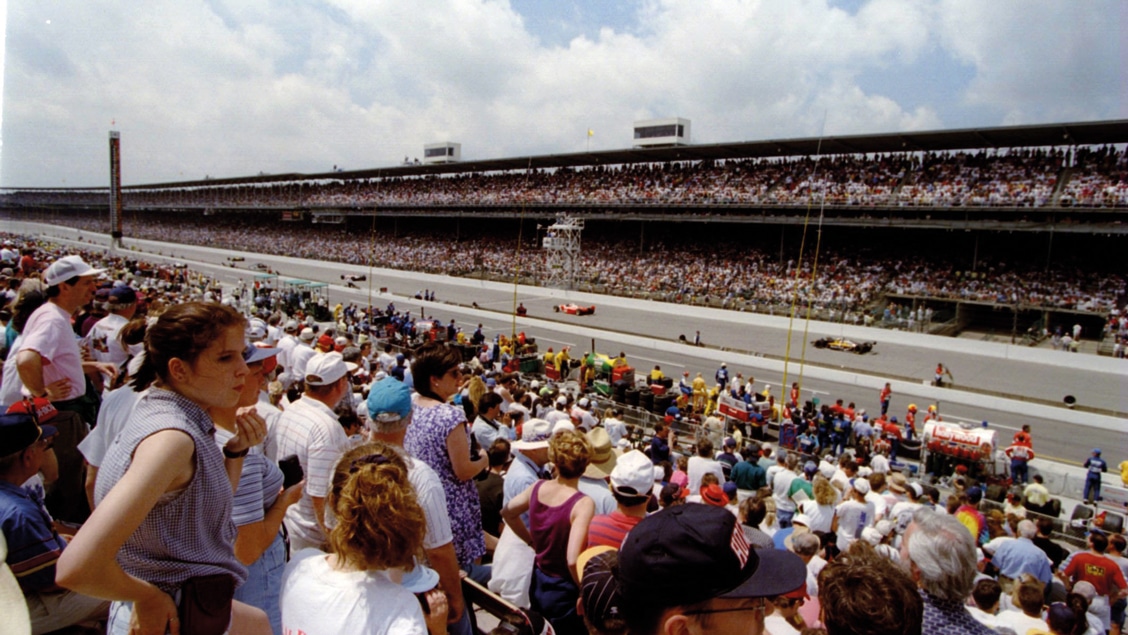
Szafnauer’s last race as a driver was at the 1995 Indy 500 weekend
Getty Images
Motor Sport: Do you think Aston Martin’s quest to win a world championship will be hamstrung by retaining Lawrence Stroll’s son Lance?
OS: Well, firstly Alonso will be as fast as ever and will do everything he can to win races whoever is his team-mate. Lawrence is there as the team owner for Lance, that’s a given, but if Lance didn’t want to race in Formula 1, or he moved to another team, then I don’t think Lawrence would be as interested as he is in staying in Formula 1.
As for the engine partnership with Honda, I was in a situation at BAR where Honda went from being an engine partner to team owner of British American Racing, so it’s possible at Aston Martin. Can history repeat itself? Yes certainly. Will Honda want to do that? That’s a tough one for me to predict.
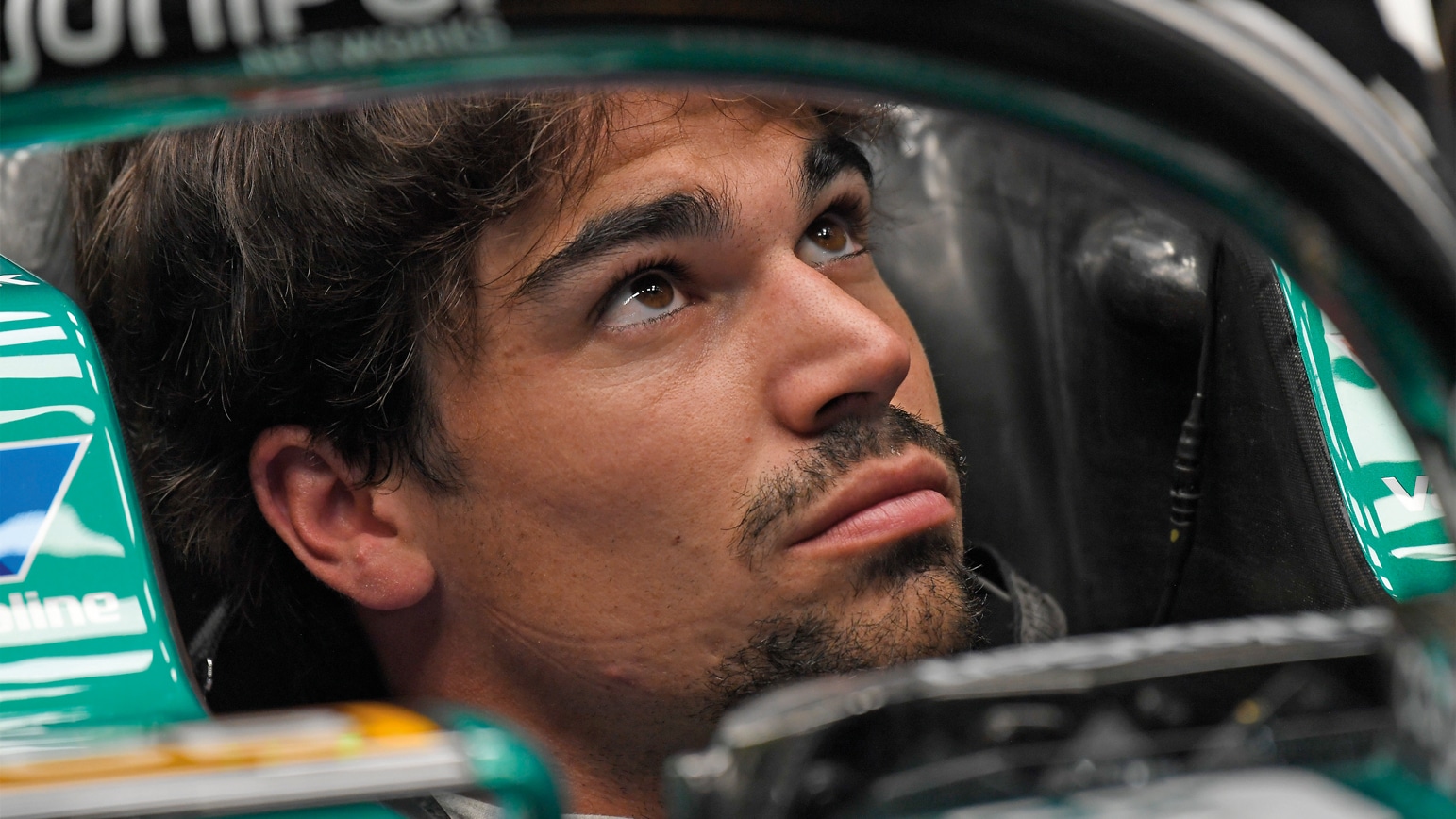
Lance Stroll races in Alonso’s shadow
Grand Prix Photo
Motor Sport: You’re not sounding like a man who is ready to walk away from motor racing any time soon. Do you have plans already?
OS: I’d like to continue but it’s got to be in a position where my experience, my skill sets, can be put to good use. I reckon I have another five to seven years in me. Maybe I have too high an opinion of myself… but I believe I still hold the skill sets to enable me to put a good team together to be competitive in Formula 1. So that’s what I want to do.
“You cannot start from scratch in F1 and hire 900 people“
I have had some discussions with Michael Andretti. He’d called me even before I went to Alpine, and I told him I’d love to help him. They have to get their Formula 1 entry first because without an entry how can I help him? If they are accepted then I will be able to discuss getting involved, getting them started, getting them moving. Something I do know, from the early days at BAR, is that you cannot start from scratch and hire 900 people and expect to get that done in a year. There aren’t going to be enough good people whose contracts are expiring. It’s just not possible. I still have the desire to compete at the highest level and do my best to succeed. So, right now, I have the desire, but I am biding my time while I cannot compete due to the provisions of my gardening leave. Pretty soon, next year hopefully, I can get back into the sport. Problem is, I am a little bit impatient.
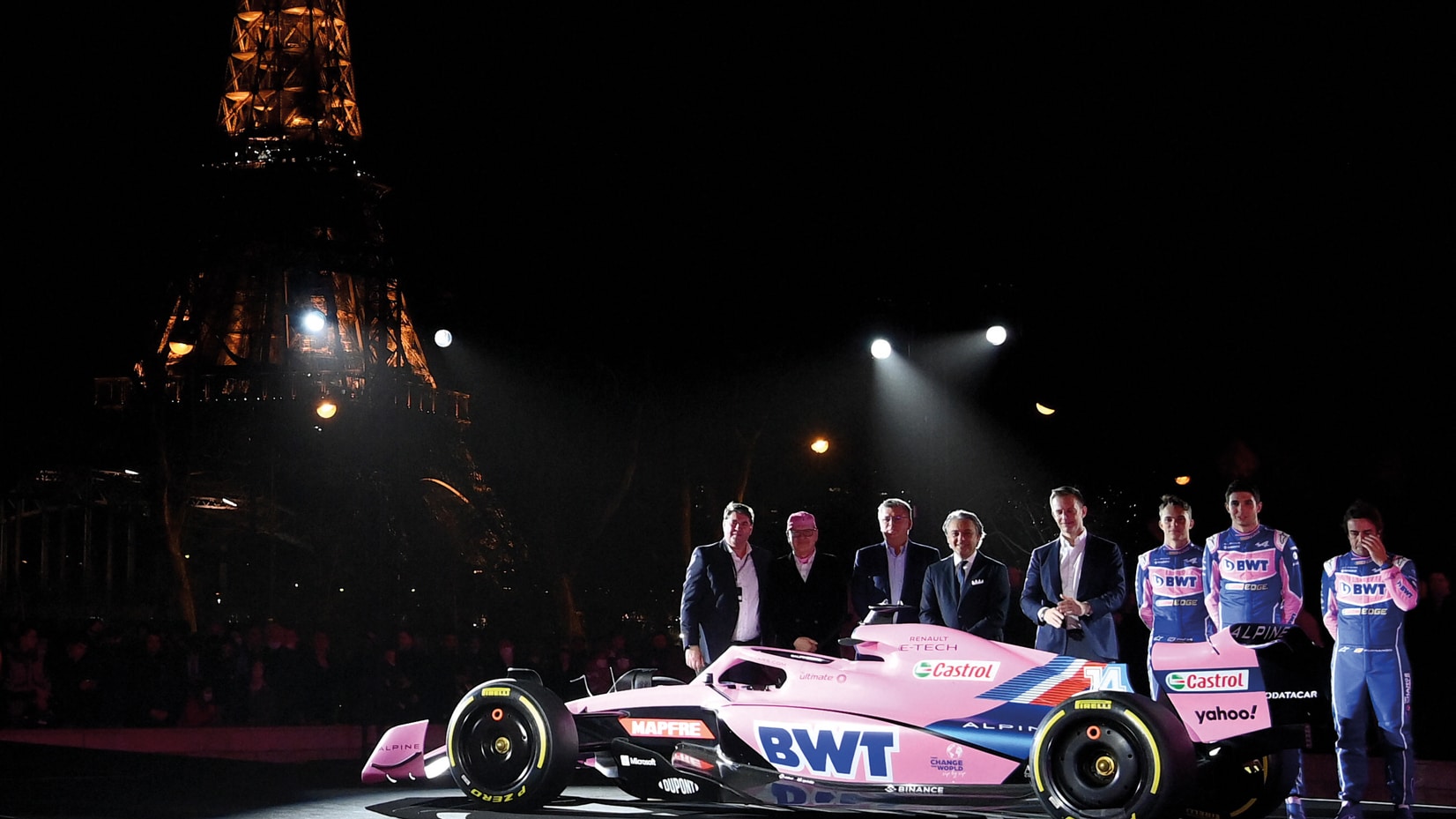
Szafnauer, third from left, at the launch of Alpine’s A522 in 2022 – but the French were impatient for success
Getty Images
Motor Sport: What about a move to IndyCar? You’re an American, you started at Ford in Detroit, you raced Formula 2000 there in the 1990s, and you’re in their Hall of Fame.
OS: Yeah, OK, I raced my Reynard when Formula 2000 supported the IndyCar series back then and it was a good time. I reckon I must be in the Hall of Fame due to my more recent managerial skills in F1 rather than anything I ever achieved on the track. My last race was the Indy 500 weekend in 1995 and in the mid-1990s IndyCar was absolutely brilliant, with such great racing. If it was still that competitive now, maybe I would consider going there. The thing is, once you’ve had the taste of competing at the very highest level, in F1, you want to get back there.
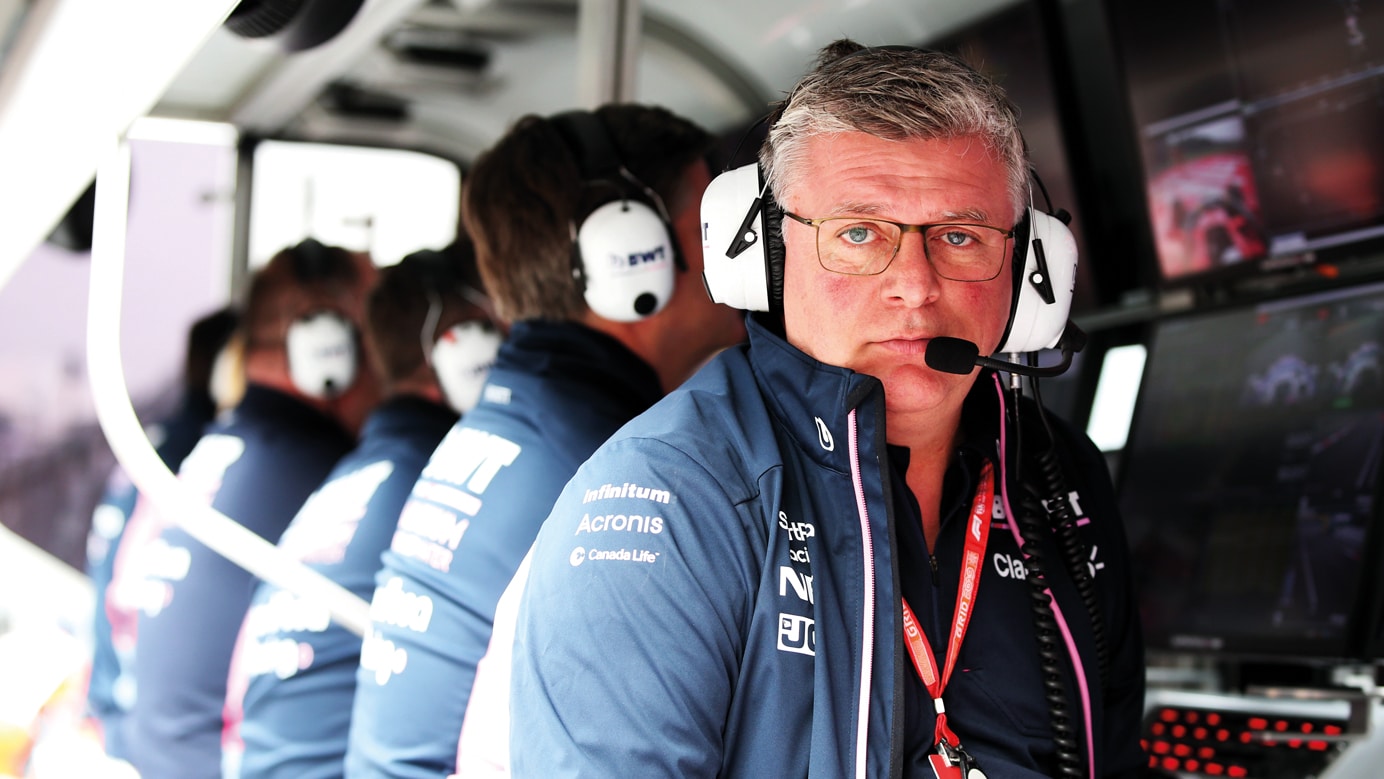
Perhaps team owners should remember – Rome wasn’t built in a day. It’s an ethos that worked for Szafnauer at Force India
Getty Images
Motor Sport: Finally, can you see Alpine succeeding? Could the team ever reach the goals they have set themselves?
OS: The only way Alpine will succeed in F1 is if they leave it to somebody who truly understands the sport and they don’t meddle in it. A good example is Toto [Wolff] at Mercedes, where Mercedes just lets him get on with running the team. Renault has been successful in the past but they were different times and they had Flavio [Briatore] who ran the team as if it was his own. So, for a major manufacturer like Renault/Alpine, they need to have a hands-off approach and allow the experts who know the business to run it. It’s the only way.
